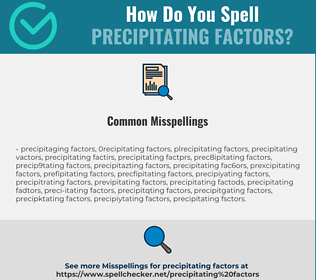PRECIPITATING FACTORS Meaning and
Definition
-
Precipitating factors refer to the elements or triggers that contribute to the occurrence of a particular event or condition, often in a sudden or accelerated manner. These factors are known to precipitate or facilitate the onset, development, or intensification of a specific situation, behavior, or phenomenon.
In various contexts, precipitating factors can be found influencing different outcomes. For instance, in medical or psychological terms, they are often used to describe events, conditions, or experiences that trigger the onset of a particular illness or a psychological episode. These factors may include stressful life events, environmental changes, genetic predispositions, or specific behaviors.
In natural sciences, precipitating factors can be seen as the catalysts that bring about certain physical or chemical reactions. For example, in chemistry, when certain substances are combined or subjected to particular conditions, they may react and precipitate another substance or form a solid during a chemical reaction.
In social or behavioral sciences, precipitating factors can pertain to the stimuli or circumstances that prompt a specific behavior or action. These factors may include external or internal triggers, social influences, cultural norms, or personal motivations that stimulate a person to exhibit a certain behavior or respond in a particular way.
Understanding the precipitating factors of a situation, event, or condition can provide valuable insights into the causes and dynamics of its occurrence, which can in turn assist in predicting, preventing, or managing its effects.
Common Misspellings for PRECIPITATING FACTORS
- orecipitating factors
- lrecipitating factors
- -recipitating factors
- 0recipitating factors
- peecipitating factors
- pdecipitating factors
- pfecipitating factors
- ptecipitating factors
- p5ecipitating factors
- p4ecipitating factors
- prwcipitating factors
- prscipitating factors
- prdcipitating factors
- prrcipitating factors
- pr4cipitating factors
- pr3cipitating factors
- prexipitating factors
- previpitating factors
- prefipitating factors
- predipitating factors
Etymology of PRECIPITATING FACTORS
The word "precipitating" originates from the Latin word "praecipitatus", which is the past participle of the verb "praecipitare". "Praecipitare" is derived from the Latin root "praecipit-" meaning "hurriedly" or "headlong". In English, "precipitate" means to bring about suddenly or unexpectedly.
The term "factors" is derived from the Latin word "factor" meaning "doer" or "maker". It comes from the Latin verb "facere" meaning "to make" or "to do".
When combined, "precipitating factors" refers to the elements or conditions that lead to or trigger a particular event or action suddenly or unexpectedly.
Infographic
Add the infographic to your website:





